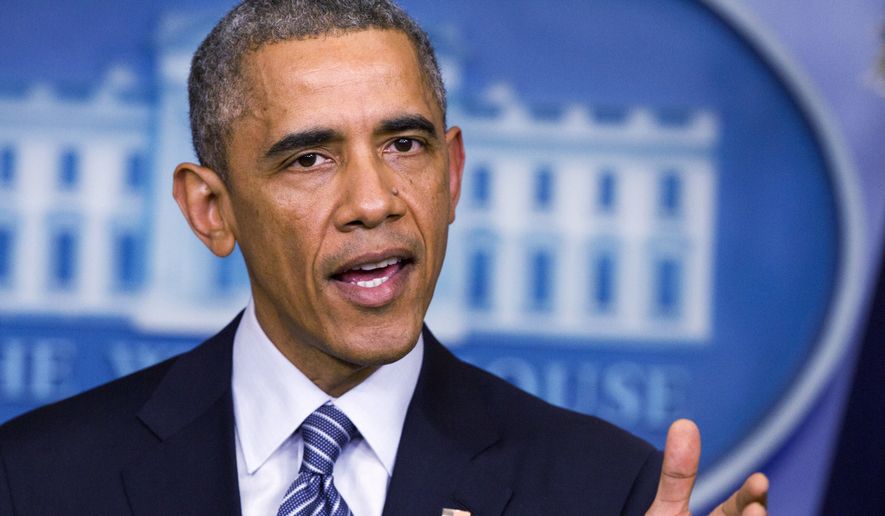As lawmakers come back to D.C. following Thanksgiving recess, nearly half of likely voters in the country want to see Congress try to find ways to stop President Obama’s recently-announced executive actions on immigration.
Forty-eight percent of likely voters think Congress should try to find ways to stop the president’s plan to allow up to 5 million illegal immigrants to stay in the country temporarily and apply for jobs and 43 percent think Congress should allow the decision to stand, according to a Rasmussen poll out Monday.
Republicans are weighing how to respond to Mr. Obama’s executive actions, which will temporarily shield from deportation illegal immigrants who have been in the country for at least five years and have a child who is a U.S. citizen or lawful permanent resident.
Mr. Obama also announced an expansion of the deferred action for childhood arrivals (DACA) program by removing the upper age restriction for illegal immigrants who come to the country as children, who are often unwittingly brought by their parents and are seen as the most sympathetic figures in the debate over the issue.
Republicans are weighing precisely how to respond to a move that many in the party are criticizing as an unconstitutional overreach without alienating Latino voters, who will be crucial to their electoral prospects in 2016.
Some want Congress to use the power of the purse to withhold funding for the actions, and Congress’s legal research team has concluded that the body does indeed have spending jurisdiction on the matter, even though U.S. Citizenship and Immigration Services (USCIS), which would handle much of the actions, is mostly fee-based.
The House Appropriations Committee had previously said USCIS had the ability to collect and use fees without congressional approval, but the Congressional Research Service (CRS) said in a letter to GOP Sen. Jeff Sessions of Alabama that courts have concluded that Congress does have oversight over such an agency since all government revenue is technically collected and redistributed.
Lawmakers face a Dec. 11 deadline to come up with some sort of agreement to fund the government past then.
The poll of 1,000 likely voters was conducted Nov. 30 and has a margin of error of plus or minus three percentage points.
• David Sherfinski can be reached at dsherfinski@washingtontimes.com.




Please read our comment policy before commenting.